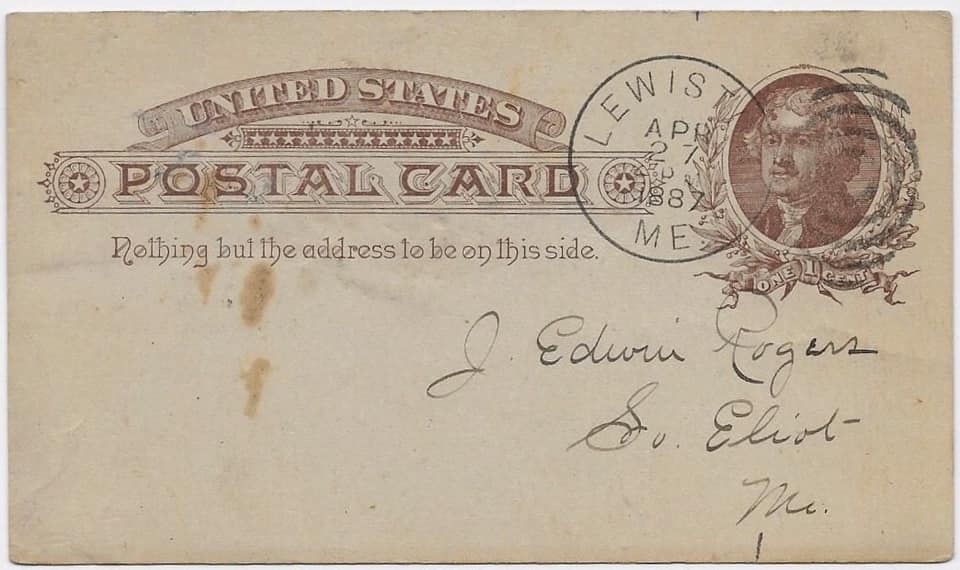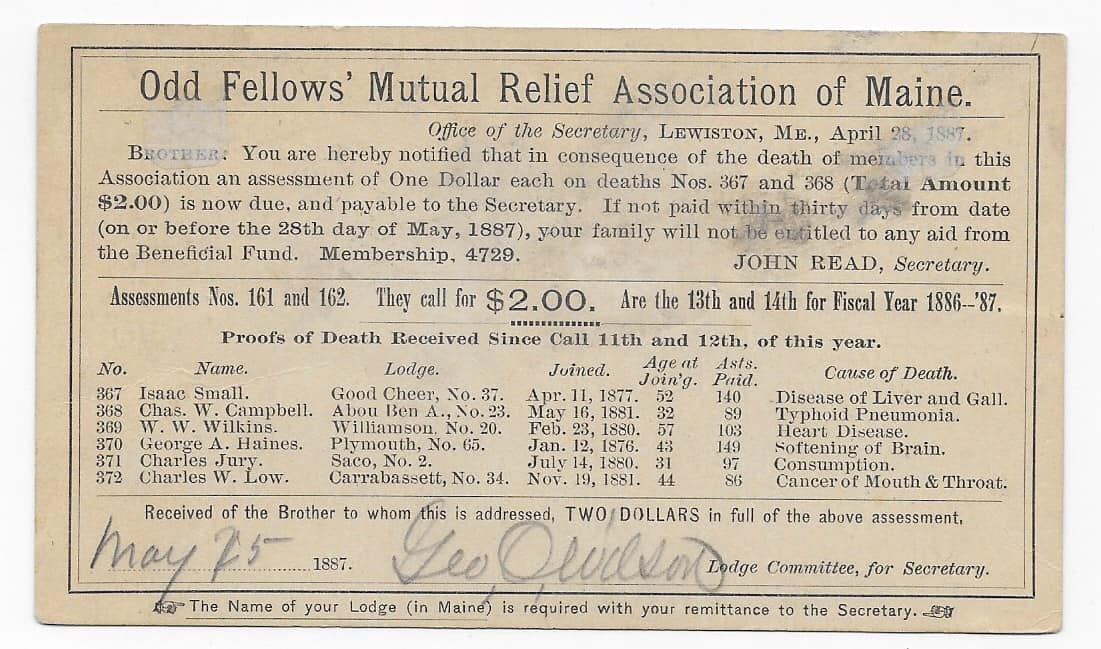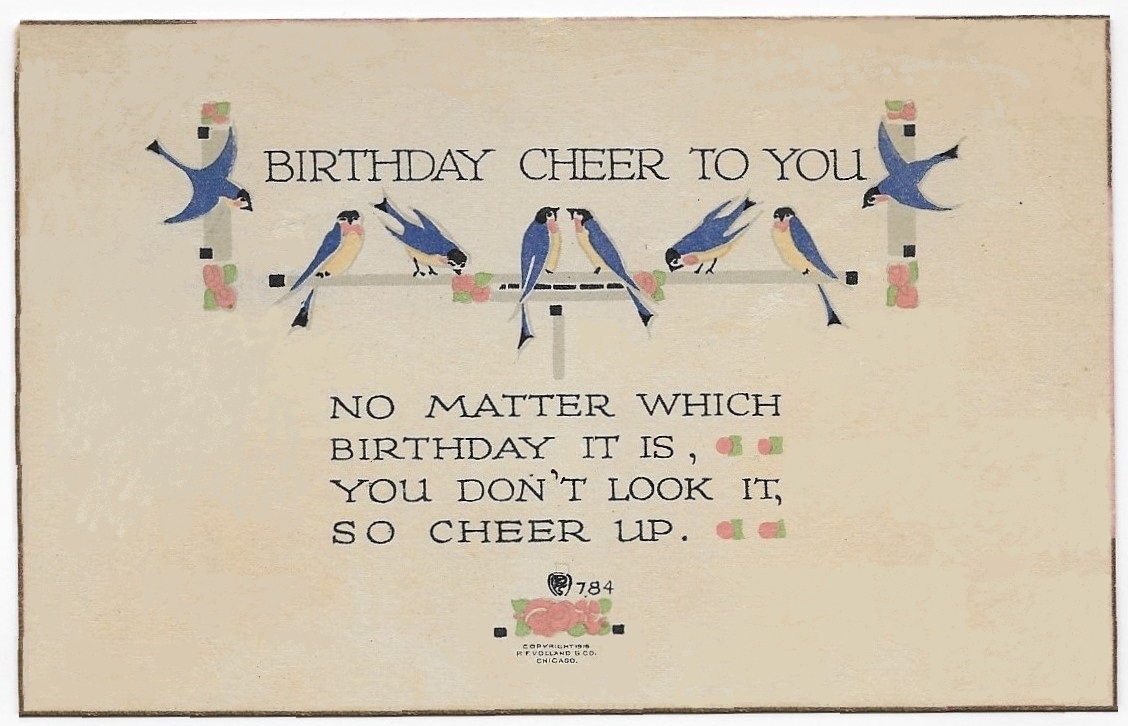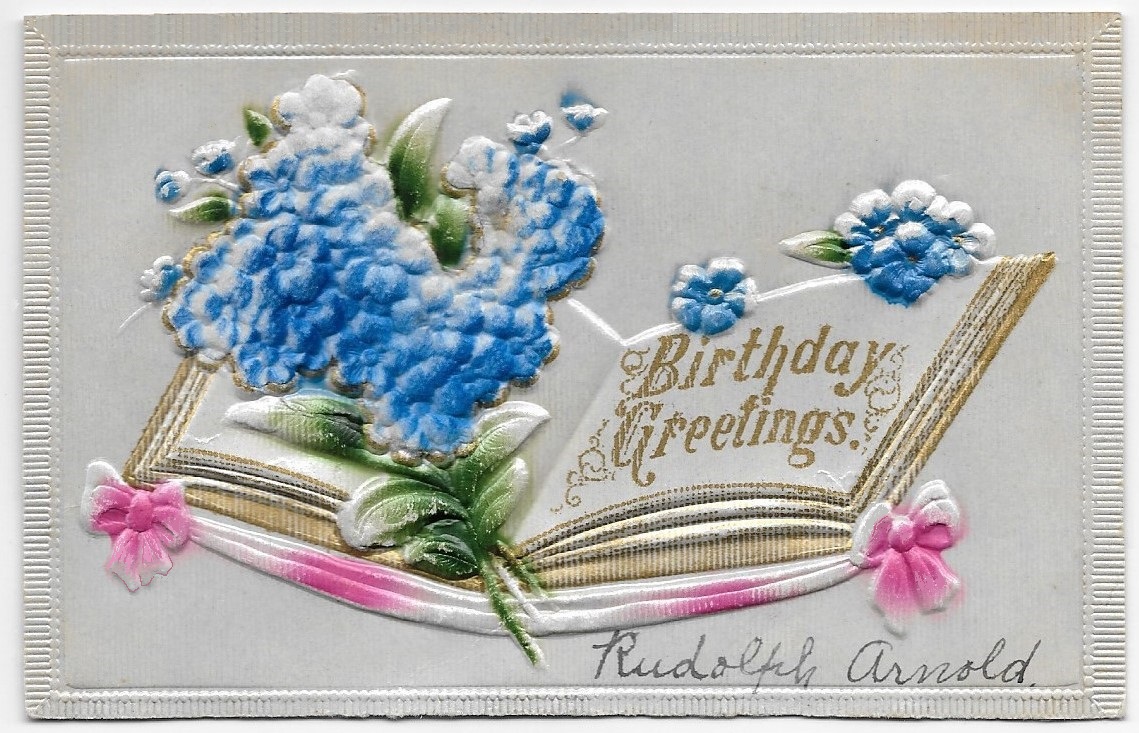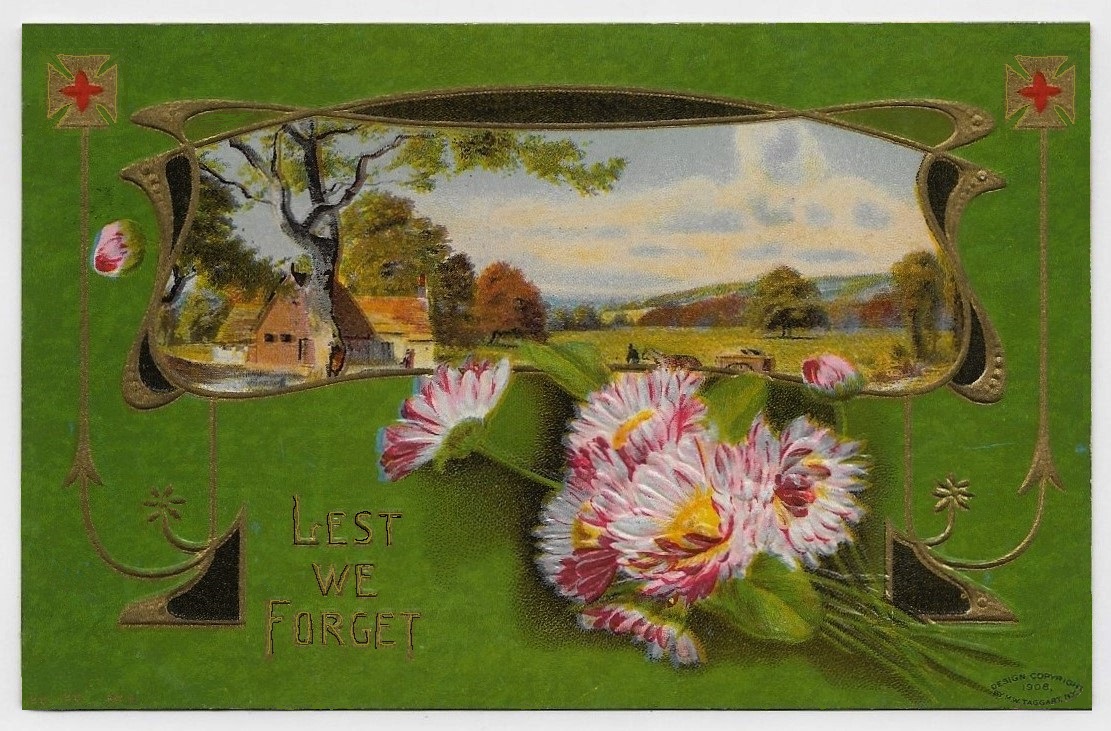It may be hard for us to imagine the financial insecurity that underlay most lives of the 19th century.
Disease and accidental death could be catastrophic for families, consigning children to poverty or custodial care.
When life insurance was not common, the Mutual Aid Society had a critical role in relieving the fear and dread of premature death.
Other postcard stories have noted the ubiquitous presence of these organizations – the Owls, the Maccabees, the Robins, and the Odd Fellows were noted in past posts.
Mr. J. Edwin Roberts lived in South Eliot, a small community in southeast Maine, within the Portland area.
In April of 1887, Mr. Roberts received a postcard receipt for the periodic assessment that had been due from living members upon the recent deaths of former Fellows.
The Secretary of the organization, John Read, signed the statement of the Assessment.
The Assessment was accompanied by a printed register – a list of members who had died (with the cause of death).
This postcard was a receipt for the two dollars paid by Mr. Roberts in response to the assessment.
One admires the orderly and business-like record-keeping.
The death notices reveal the necessity of the organization: one Fellow died of Typhus at age 32; another died of Tuberculosis at age 31, one died of throat cancer at age 44.
One hopes that membership in the Odd Fellows secured some relief to the families of the men who had died, and provided some feelings of comfort for Mr. Roberts.
